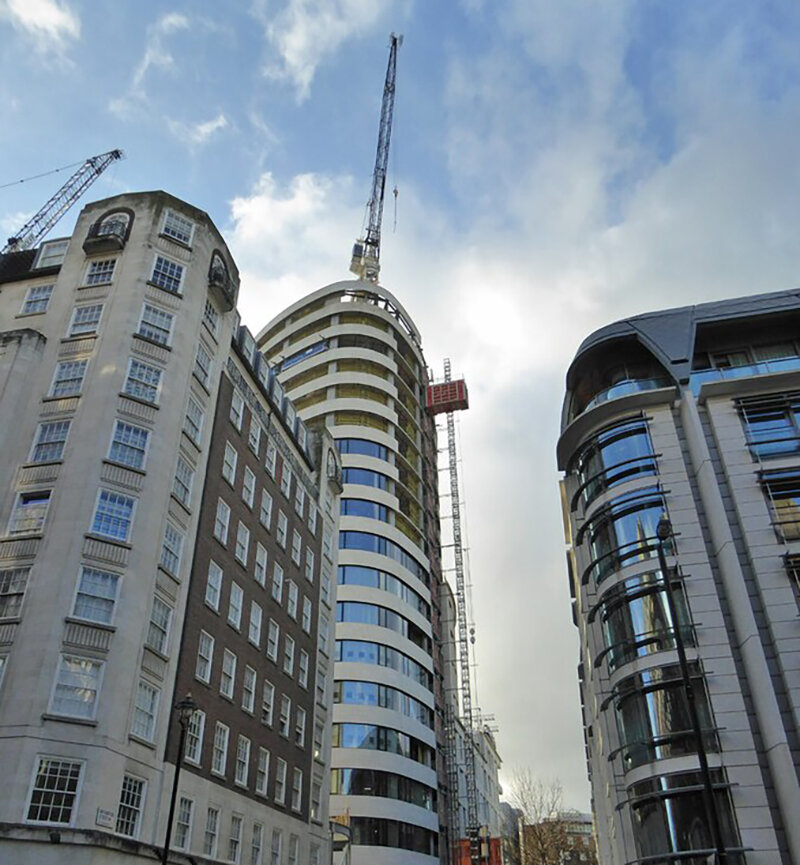read also
 Over €175 Million in Tax Refunds Remain Unclaimed in Greece
Over €175 Million in Tax Refunds Remain Unclaimed in Greece
 Citizenship in South America: How the Mercosur Agreement Works
Citizenship in South America: How the Mercosur Agreement Works
 Rising Crime Levels in Several Canadian Cities
Rising Crime Levels in Several Canadian Cities
 Türkiye strengthens its role in global tourism
Türkiye strengthens its role in global tourism
 Slovenia Work Permits Become a Key Hiring Bottleneck
Slovenia Work Permits Become a Key Hiring Bottleneck
 Asset Reinvention Reshapes Thailand’s Hotel Market
Asset Reinvention Reshapes Thailand’s Hotel Market
Housing Construction in the UK Declines for the Third Month

The PMI index for UK housing construction shows the fastest contraction in six months. High interest rates and weak consumer confidence are threatening the Labour government’s plans to stimulate the sector, reports Bloomberg.
The S&P Global Construction Purchasing Managers' Index (PMI) fell to 53.3 in December 2024 from 55.2 the previous month, exceeding experts’ forecasts of 54.4. While the index remains above the 50 mark, indicating growth, the decline in the housing subindex is particularly concerning for Prime Minister Keir Starmer. Starmer has pledged to deliver 1.5 million homes over five years, but the program’s implementation has slowed as private developers reduce projects in response to falling demand and high interest rates.
Slowing Recovery in Construction
In September 2024, S&P Global's PMI stood at 57.2, dropping to 54.3 in October. This effectively halted the emerging recovery in the construction sector, primarily due to developers scaling back housing projects for the first time in four months. This retrenchment was driven by new government policies, including a £40 billion tax burden on construction firms.
Labour’s budget is likely to have varying impacts across market segments. A key short-term effect is expected from the restoration of stamp duty in April 2025, which may shift purchases to Q1. The unexpected exemption of residential properties from capital gains tax has been offset by an increase in stamp duty on additional properties, rising from 3% to 5%, potentially reducing supply in the private rental sector. Changes in taxation for non-residents may also impact major markets.
Overall, the budget could lead to increased inflation, slowing the pace of interest rate reductions for mortgage borrowers.
Housing Prices Under Pressure
According to Halifax, housing prices fell in December for the first time in nine months. However, the 0.2% decline from November’s record high offers little relief to millions of Britons. With an average home price of nearly £300,000 ($376,130), housing costs are more than six times the average full-time salary. Over the past 20 years, housing prices have nearly doubled, rising by 3.3% in 2024, the largest annual increase since the start of the pandemic.
Outlook for Recovery
Developers may increase housing output if the property market recovers in 2025 as interest rates ease. Tim Moore, Economics Director at S&P Global Market Intelligence, noted that December’s data highlights “a loss of growth momentum” in the sector, with firms citing “high borrowing costs and weakened consumer confidence as significant hurdles.”
The data also points to sustained wage pressures in construction, with subcontractor rates rising at the fastest pace since April 2023. Business surveys indicate growth in commercial construction and civil engineering, albeit at slower rates. Overall, new order growth was the weakest since June, and companies reduced material purchases for the first time in eight months.
Signs of Optimism for 2025
Despite challenges, there are signs of recovering confidence following the Labour government’s October budget. Nearly half of firms anticipate output growth this year, while only 15% expect a decline—an improvement from November. Experts predict rising housing prices, a stronger pound, improved stock markets, enhanced trade, and lower mortgage rates, all of which could boost market activity.
Much will depend on the policies of Donald Trump, who assumes the U.S. presidency on January 20, 2025. Meanwhile, the UK has decided to strengthen ties with the EU, fostering optimism for economic growth and recovery in 2025.


